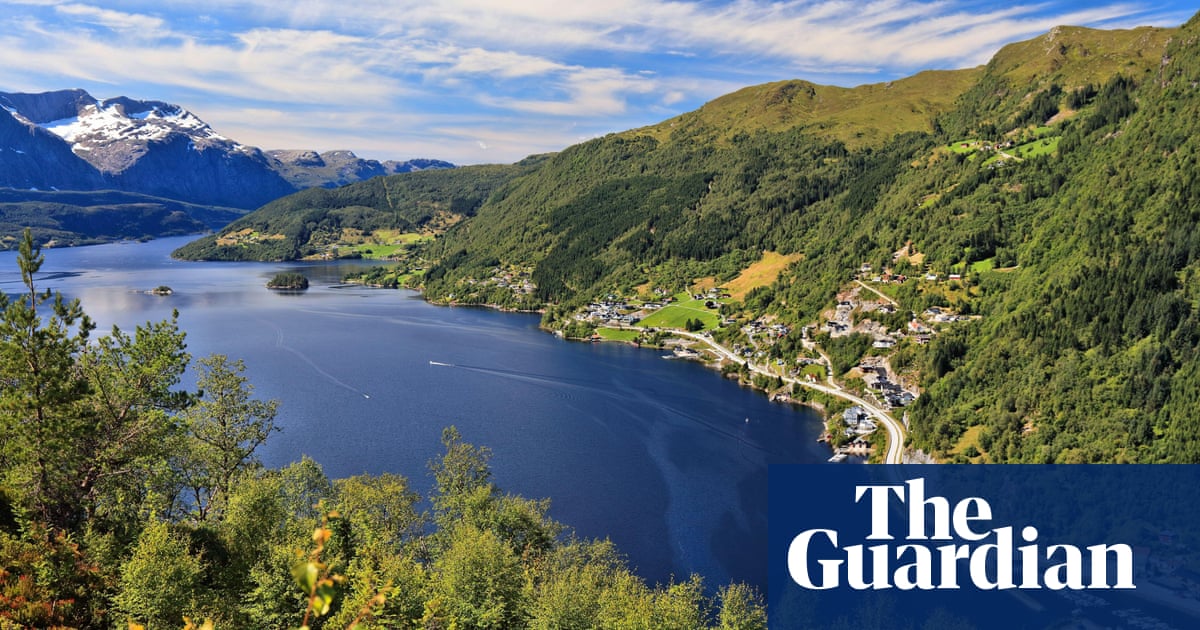
Norway is to allow mining waste to be dumped in its fjords after the government won a court case against environmental organisations trying to block the plan.
After a 15-year dispute, the private company Nordic Mining has been given the go-ahead to dispose of 170m tonnes of mining waste at the bottom of the Førde fjord, which critics say will threaten marine life and put biodiversity at risk.
Norway joins only two other countries – Papua New Guinea and Turkey – that still grant new licences for marine waste disposal.
The court ordered Friends of the Earth Norway and Nature and Youth, the two environmental organisations who brought the case, to pay legal costs of about £110,000. They could still take the case to the court of appeal, but say their resources are currently too diminished to continue the fight, though they are hoping for external support.
Truls Gulowsen, the head of Friends of the Earth Norway, said: “This contravenes the Aarhus convention, which states that access to justice in environmental matters should not be financially prohibitive. We just don’t have the money to pursue the case at this moment in time.”
He said the verdict might discourage future lawsuits aimed at protecting the environment against commercial forces.
Critics have accused the government of ignoring its own advisers, the Norwegian Institute of Marine Research.
Geir Huse, a senior scientist at the institute, said: “Our role is to do research and advise the administration about the likely consequences, but it’s up to the politicians and the administration to make the decisions.
“Our assessment of this project has evolved over time. Today we conclude that we advise against marine waste disposal as it could jeopardise a healthy, sustainable ecosystem in the Førde fjord.”
Huse said the fjord was an important breeding ground for cod as well a migration route for salmon from four rivers, and pointed to the risk of fine particles being dispersed over a wider expanse of the sea.
“There is a great probability that they will spread beyond the fjord with unknown consequences,” he said.
Nordic Mining will extract garnet, a unique mineral used as an abrasive, and rutile, an oxide mineral composed of titanium dioxide, which is used in paint, cosmetics, medical implants and artificial joints among other things.
The company has been granted permission to dispose of 4m tonnes of waste a year, but the Nordic Mining chief executive, Ivar S Fossum, said the company was planning to dispose of 1.2m tonnes a year. The area designated for the disposal is 4 sq km, covering 4% of the bottom of the fjord.
Gulowsen said: “It’s frightening that the judicial system shows so little understanding for environmental rights.” The plaintiffs claimed the verdict was in breach of the EU’s water framework directive, which they claimed in this case had been misinterpreted.
“It’s embarrassing that Norway is still practising marine waste disposal,” Gulowsen said. “Perhaps it shows an old-fashioned attitude to the sea, treating it like ‘What is out of sight is out of mind’. This is the direct opposite of what should be expected of a seafaring nation.”
Earlier this week, Norway faced criticism after parliament voted to allow commercial deep sea mining on its seabed, despite warnings that it could be devastating to marine life.
A Norwegian government spokesperson said: “There has never been any disagreement that mining tailings have environmental consequences whether they are disposed on land or in water. In the case at hand the parties agreed that land disposal was not a better environmental option than sea tailings disposal. There are currently no alternatives for storing such volumes of mine tailings.”












